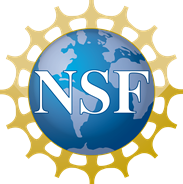
November 26 - December 1, 2023
Boston, Massachusetts
Symposium Supporters
2023 MRS Fall Meeting & Exhibit
Symposium SB07-Translational Neuroelectronic Materials and Devices for Bioelectronic Medicine
The convergence of biomaterials and electronic devices provides an intellectual landscape that spans a variety of disciplines including materials science and engineering, physics, chemistry, polymer sciences, and medicine. Of particular interest are materials that act at the interface between electronics and biology e.g. supporting sensing, stimulation and signal transduction or actively modulating the tissue microenvironment. One example is neural interfaces, which are devices that are implanted into the nervous system for communication with neural tissue (recording from and stimulation of), e.g. to treat or assist patients with disabilities or neurological disorders.
The quality of signal transduction between the electrodes and neurons depends on physical and chemical properties of the electrode-tissue interface that ultimately relies on the specifics of the material design that enables a long-term stable and functional interface. The challenge for materials science is to design and develop advanced multifunctional biomaterials to safely integrate with neural tissue with minimal biological response. Substrates and electrode materials must meet strict electrochemical requirements such as long-term stability, biocompatibility, and resistance to corrosion in physiological environment. Furthermore, the implant materials and structure should match the mechanical properties of surrounding tissue to prevent injury due to micromotion and allow for adequate exchange of nutrients and waste so that the surrounding tissue remain healthy. Last, but not least, there is a translational challenge, and a need to streamline process technologies to match stringent regulatory requirements.
This symposium will focus on the latest advances in biomaterials to control/engineer neuron- and bio-electronic interfaces to produce stable and functional systems with greater longevity than what is possible today. Session topics will spotlight the latest efforts to achieve the most effective and safest strategies to communicate with neurons. The symposium is not limited to applications in the nervous system, but will address the broader context of bioelectronic medicine.
The quality of signal transduction between the electrodes and neurons depends on physical and chemical properties of the electrode-tissue interface that ultimately relies on the specifics of the material design that enables a long-term stable and functional interface. The challenge for materials science is to design and develop advanced multifunctional biomaterials to safely integrate with neural tissue with minimal biological response. Substrates and electrode materials must meet strict electrochemical requirements such as long-term stability, biocompatibility, and resistance to corrosion in physiological environment. Furthermore, the implant materials and structure should match the mechanical properties of surrounding tissue to prevent injury due to micromotion and allow for adequate exchange of nutrients and waste so that the surrounding tissue remain healthy. Last, but not least, there is a translational challenge, and a need to streamline process technologies to match stringent regulatory requirements.
This symposium will focus on the latest advances in biomaterials to control/engineer neuron- and bio-electronic interfaces to produce stable and functional systems with greater longevity than what is possible today. Session topics will spotlight the latest efforts to achieve the most effective and safest strategies to communicate with neurons. The symposium is not limited to applications in the nervous system, but will address the broader context of bioelectronic medicine.
Topics will include:
- Flexible neural electrodes
- Neural electrode materials
- Surface modification of neural electrodes
- Biocompatibility of neural electrodes
- Artificial retina, Cochlear implants, Artificial senses
- Drug delivery to the brain
- Materials at the interface with biology
- Axonal guidance
- Biostability of the neuroprosthetics
- Integrated sensors and recording
- Limb prostheses
Invited Speakers:
- Mohammad Reza Abidian (University of Houston, USA)
- Polina Anikeeva (Massachusetts Institute of Technology, USA)
- Zhenan Bao (Stanford University, USA)
- Elisabetta Chicca (University of Groningen, Netherlands)
- Tiago Costa (Delft University of Technology, Netherlands)
- Timothy Denison (University of Oxford, United Kingdom)
- José Garrido (Catalan Institute of Nanoscience and Nanotechnology, Spain)
- Eric Glowacki (CEITEC - Central European Institute of Technology, Czech Republic)
- Dion Khodagholy (Columbia University, USA)
- Tae-il Kim (Sungkyunkwan University, Singapore)
- Stéphanie P. Lacour (École Polytechnique Fédérale de Lausanne, Switzerland)
- John Rogers (Northwestern University, USA)
- Darren Svirskis (University of Auckland, New Zealand)
- Benjamin Tee (National University of Singapore, Singapore)
Symposium Organizers
Georgios Spyropoulos
Ghent University
Department of Information Technology
Belgium
Maria Asplund
Chalmers University of Technology
Department of Microtechnology and Nanoscience
Sweden
Alexandra Paterson
University of Kentucky
USA
Achilleas Savva
Delft University of Technology
Department of Microelectronics
Netherlands
Topics
biomaterial
biomimetic
organic
polymer




-2.tmb-mtg_rel_ad.png?Culture=en&sfvrsn=a4240c09_1)

























